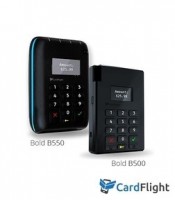The mobile point-of-sale revolution is picking up momentum, despite having started nearly a decade ago with the first attachable card-reading devices for mobile phones. Projections from United Kingdom-based Juniper Research released this week indicate the installed base of mobile point-of-sale devices of all kinds worldwide—including integrated technology from major vendors—will soar from 19.3 million in 2017 to around 50 million by 2023.
At 37%, North America accounts for the largest share of these devices, according to Juniper. That implies a North American population of nearly 7.2 million. If that percentage remains constant, the 2023 number will reach 18.5 million devices.
Driving the trend worldwide is emerging demand from very small businesses, sometimes those with only one or two employees, according to Juniper’s findings. These businesses operate in venues like markets, cafes, and music festivals where card acceptance is vital. At the same time, mobile technology is making digital card payments possible in venues that formerly accepted only cash.
“MPOS solutions are an increasingly essential part of normal life, with customers expecting card payments as a default in many markets,” the firm notes in a white paper based on its research. “This extends to traditional cash-only scenarios.”
That rising demand has enticed a growing number of traditional POS terminal makers into the market alongside providers like Square Inc. and iZettle, which have been serving small merchants for years. That trend in turn is generating a line of mobile devices for larger businesses that handle payments but also now tie into merchants’ overarching point-of-sale systems, capturing data for other uses.
“These integrations are generally focused on an effective omnichannel experience, which has become essential for retailers as the in-store and e-commerce channels merge,” Juniper notes.
At the same time, these mPOS vendors are able to make devices at less cost. The average price globally will drop from $40 this year to $33 by 2023, Juniper forecasts. More attractive pricing will have a feedback-loop effect on the mPOS device market, Juniper says.
“This affordability, coupled with the simplicity of mPOS devices, will make them highly attractive to smaller, previously cash-driven businesses,” the research firm says. “Established POS vendors such as Verifone and Ingenico will therefore increasingly look to mPOS as an area for future growth, expanding their market reach to previously unaddressed markets.”
Another emerging trend is the increasing importance of biometric technology, such as fingerprint ID, for user authentication at mobile POS devices. This technology will have been incorporated in 4% of the mPOS installed base by 2023, Juniper forecasts. That works out to about 2 million devices.
All told, the worldwide volume running through mPOS will grow from 28 billion transactions this year to 87.3 billion in five years, according to the projection.






